Carl E. Olson's Blog, page 204
August 6, 2012
"The Transfiguration: Gospel to the Dead" by Frank Sheed
From To Know Christ Jesus
At Caesarea Philippi Jesus told the apostles that he would suffer and die and on the third day rise again. A week later, transfigured upon a mountain, he told Moses and Elijah. 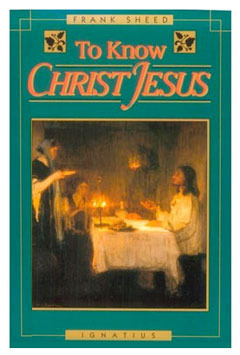
Present when he told them were Peter and James and John, whom he had chosen to have with him when he raised Jairus' dead daughter to life, and whom he would choose to have nearest to him in Gethsemane. We tend to think of them as principals at the Transfiguration, almost as though the whole incident had been staged for their sake. Strengthened and comforted by it they certainly were; but they were not principals. Jesus conversed with Moses and Elijah: the three apostles were asleep part of the time and contributed nothing. Only one of them said anything at all: Peter said that it was a good thing they were there—they could make three shelters, one for Jesus, one for Moses, one for Elijah; but he himself tells us, through Mark (9:5), that he was too frightened to know what he was saying.
Let us glance quickly at what happened as told in the opening verses of Mark's ninth chapter and Matthew's seventeenth. Read especially Luke (9:28-36). He gives the most detailed account, and we wonder who was his informant. Of the three who were there, Peter tells us what happened through Mark (and find it again in 2 Peter 1:17-18—be sure to read it); James was long dead; could it have been John? Apart from "we saw his glory, he glory as of the only begotten of the Father", he says nothing of the Transfiguration in his own Gospel. It may be that Luke had a ready told all that John had to tell.
As at Caesarea Philippi, Jesus had climbed some way up a mountain to pray. As he prayed he was "transfigured"—the Greek word is "metamorphosed"—his face shining like the sun, his garments dazzling white, like snow. It is not clear at what point the three apostles went to sleep, but when they were fully awake they saw their Lord "in his glory", and Moses and Elijah standing with him, they too in glory. The three were speaking of the death that he would die in Jerusalem.
Moses was Israel's law giver, dead these fifteen hundred years. Elijah, greatest of prophets, had been whirled up into the sky eight hundred years before; and the prophet Malachi had said (4:5) that God would send him "before the coming of the great and awe-filled day of the Lord". Where had they come from?
Of Elijah the destiny is wholly mysterious. About Moses there is no such mystery. He was simply one of the greatest of those who had died at peace with God. Heaven was closed to these until Calvary should expiate the sin of the race. The soul of Moses, and the souls of all of them, were in a place of waiting—limbo, the border region, we most often call it. Abraham's bosom, Jesus called it in the parable of Dives and Lazarus; paradise, he called it to the thief who appealed to him on the Cross.
Supremely Moses represented the Law, and Elijah the prophets. What happened on the mountain established the continuity between Israel of old and the Kingdom, now at last to be founded, in which Israel was to find its fulfillment. It seems strange that the representatives of the Kingdom were, as they would be likewise in Gethsemane, asleep part of the time, and frightened when they were fully awake. It was no very stimulating account Moses would take back to limbo of the men on whom the Kingdom was to be built.
But for these—long dead or newly dead—who had been waiting in all patience till the Redeemer should open heaven to them, Peter, James, and John must have mattered little compared with the news Moses brought back that their redemption was at hand and how it was to be accomplished. What Jesus had told at Caesarea Philippi to men living upon earth, he now told through Moses to the expectant dead. Through Moses the Law had been given to the children of Israel. Through Moses the Gospel, the good news, reached limbo.
As Peter finished his proposal to build three shelters, a luminous cloud overshadowed them, wrapping them round so that once again they were afraid. A Voice came out of the cloud saying: "This is my beloved Son, in whom I am well pleased: hear ye him." The last three words, establishing our Lord's authority as teacher, were new. All the rest had been said by the same Voice at Jesus' baptism in Jordan.
Peter, James, and John had been afraid—afraid when they saw Jesus and Moses and Elijah all white and luminous, afraid when the cloud wrapped them round, afraid when the Voice sounded from the cloud. With a touch of his hand and the words "Arise and fear not", he recalled them to the world they were used to.
As they raised their frightened faces, they saw "no one but only Jesus"! He told them to say nothing of what they had seen on the mountain till the Son of Man (still his own phrase for himself, used of him by none of them) should be risen from the dead. Among themselves, they wondered just what that "risen from the dead" might mean. They had seen the daughter of Jairus and the young man of Nain dead and alive again. But they could not imagine how all this could apply to him who had raised those two.
And there was another problem, which they did discuss with Jesus himself as he and they came down the slope next day. They had just seen Elijah, and with this talk of Jesus dying, they would remember that Elijah had not died like other men; and they would remember that Malachi had said that Elijah would return and restore a sinful people to virtue before the day of the Lord. It was all very puzzling, and they put the puzzle to their Master. His answer, to the effect that Elijah had already returned in the person of John the Baptist, might have been clearer to them, had they known what the angel had said to Zechariah in the annunciation of John's birth (Lk 1:17)—"He shall go before the Lord in the spirit and power of Elijah ... to prepare unto the Lord a perfect people." At least they would have remembered that Elijah had lived in the desert, preached repentance, and rebuked rulers.
Related Ignatius Insight Book Excerpts:
• St. John the Baptist, Forerunner | Frank Sheed
• The Incarnation | Frank Sheed
• The Problem of Life's Purpose | Frank Sheed
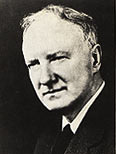 Frank Sheed (1897-1981) was an Australian of Irish descent. A law student, he graduated from Sydney University in Arts and Law, then moved in 1926, with his wife Maisie Ward, to London. There they founded the well-known Catholic publishing house of Sheed & Ward in 1926, which published some of the finest Catholic literature of the first half of the twentieth century.
Frank Sheed (1897-1981) was an Australian of Irish descent. A law student, he graduated from Sydney University in Arts and Law, then moved in 1926, with his wife Maisie Ward, to London. There they founded the well-known Catholic publishing house of Sheed & Ward in 1926, which published some of the finest Catholic literature of the first half of the twentieth century.
Known for his sharp mind and clarity of expression, Sheed became one of the most famous Catholic apologists of the century. He was an outstanding street-corner speaker who popularized the Catholic Evidence Guild in both England and America (where he later resided). In 1957 he received a doctorate of Sacred Theology honoris causa authorized by the Sacred Congregation of Seminaries and Universities in Rome.
Although he was a cradle Catholic, Sheed was a central figure in what he called the "Catholic Intellectual Revival," an influential and loosely knit group of converts to the Catholic Faith, including authors such as G.K. Chesterton, Evelyn Waugh, Arnold Lunn, and Ronald Knox.
Sheed wrote several books, the best known being Theology and Sanity, A Map of Life, Theology for Beginners and To Know Christ Jesus. He and Maise also compiled the Catholic Evidence Training Outlines, which included his notes for training outdoor speakers and apologists and is still a valuable tool for Catholic apologists and catechists (and is available through the Catholic Evidence Guild).
For more about Sheed, visit his IgnatiusInsight.com Author Page.
August 4, 2012
The Food that Endures for Eternal Life
A Scriptural Reflection on the Readings for Sunday, August 5, 2012, the Eighteenth Sunday in Ordinary Time | Carl E. Olson
Readings:
• Ex 16:2-4, 12-15
• Ps 78:3-4, 23-24, 25, 54
• Eph 4:17, 20-24
• Jn 6:24-35
“The sign of the feeding of the thousands,” wrote Monsignor Romano Guardini in The Lord, “shatters the narrowness that has been closing in on Jesus.”
What does that mean? Those in the crowds following Jesus viewed him through a cramped and selfish set of lens. Having witnessed amazing signs, they wondered how they could benefit materially or politically, perhaps by setting Jesus up as king (Jn. 6:15). Having seen bread multiplied before their eyes, they could think only of getting even more, and of satisfying their physically hunger.
The shattering was, in today’s Gospel reading, going to become a sort of spiritual explosion, which would begin to destroy mere material ambitions and challenge the people’s understanding (or absence of understanding) of God’s ways. Although Jesus had compassion on the hungry crowds and fed them, he knew far more was needed. The Son of God did not become man just to fill stomachs, but to awaken, save, and fill souls. “Our Lord made bread in plenty from just a little bread in the desert and changed water into wine at Cana,” wrote Ephrem the Syrian, “He first sought to accustom their mouths to his bread and his wine until the time would come for him to give them his blood as well as his body.”
Just as he spoke of natural birth with Nicodemus and natural water with the Samaritan woman at the well, Jesus began, in this instance, with natural bread. But it was just a starting point, for he was intent on showing the people their spiritual starvation and their need for heavenly nourishment. And so he took a further step when he offered a stiff rebuke. “Amen, amen, I say to you,” he declared as he exposed their earth-bound thinking, “you are looking for me not because you saw signs but because you ate the loaves and were filled.”
This is the first of the four “Amen, amen” statements made in John 6. Each builds on the previous; each is a profound pronouncement. The Hebrew word “amen” (sometimes translated “truly” or “verily”) indicated a solemn statement of truth and veracity. It was, in essence, a sacred oath. In this first instance, the rebuke was followed by an exhortation to not work for food that perishes, but “for food that endures for eternal life.” What is required? What is needed? Belief in the One sent by God.
The response to this call to faith was astounding: “What sign can you do …? What can you do?” They had seen him multiply five loaves and two fishes to feed thousands and they still demand a further sign, further proof! Their reference to their ancestors in the desert with Moses is, of course, quite ironic, for the Israelite community—as today’s Old Testament reading recounts—continually doubted and second-guessed the authority of Moses. Given manna—“bread from heaven”—the Israelites had asked, “What is this?” (Ex. 16:15).
Their descendents, likewise, failed to recognize the supernatural character of the Incarnate Word and the heavenly origin of the God-man. In order to comprehend where he was from, they had to be corrected about Who gave the bread from heaven. It was God the Father, not Moses, who sustained the people in the wilderness.
The woman at the well, not yet comprehending the spiritual nature of Jesus’ words, had said, “Sir, give me this water” (Jn. 4:15). In a similar manner the people in the crowd insist, “Sir, give us this bread always.” But they, like their fathers, still did not understand “that man does not live by bread alone, but that man lives by everything that proceeds out of the mouth of the Lord” (Deut. 8:3). Having eaten the bread miraculously multiplied before them by the hands of God, they still tried to force God into a box—a lunch box.
That box—the destructive illusion of selfishness, political schemes, and materialism—was shattered with a few simple words: “I am the bread of life.” The new manna was a man!
(This "Opening the Word" column originally appeared in the August 2, 2009, issue of Our Sunday Visitor newspaper.)
August 3, 2012
Grey is the Devil’s Favorite Color
Grey is the Devil’s Favorite Color | Teresa Tomeo | Catholic World Report
Even many Catholics dismiss Fifty Shades of Grey as harmless entertainment. They couldn’t be more wrong.
“Grey is the devil’s favorite color.” How I wish I could take credit for that powerful quote. However, it actually belongs to none other than philosopher, Catholic convert, author, and esteemed professor Dr. Peter Kreeft. A wise listener of mine sent me the Kreeft quote to help summarize the current obsession, and not just among the general public, with the Fifty Shades of Grey book trilogy. The fictional series written by E.L. James focuses on the sado-masochistic relationship between a young woman, Anastasia Steele, and her billionaire boyfriend, Christian Grey. It is so terribly raunchy it’s been dubbed “mommy porn” by secular critics and so graphic it’s described as yet one more example of “violence against women” by Dr. Drew Pinsky, TV host and popular relationship expert.
Kreeft’s clever quip was not referring to Fifty Shades of Grey in particular, of course, but to moral relativism in general. You know the “We can do whatever we want with whom, whatever makes us happy or feel good” approach that in many ways has taken over our way of thinking, if you can even call that thinking. Book sales have reached the 30 million-plus mark. The movie rights have been sold for $5 million. The owners of a hotel in Great Britain have also decided that, out of the goodness of their hearts, they are replacing Gideon Bibles with Fifty Shades of Grey, because, well, some of their guests may be too shy to purchase the books or feel a little strange about reading them at home around family. So that’s just the type of thoughtful hotel proprietors they are. And in June E.L James signed the dotted line on a deal with an agency responsible for licensing and building the Fifty Shades brand, a brand that is expected to include lingerie, perfume, and even bedroom furniture and linens mostly targeted at adult women. Here’s another quote that comes to mind, and this one is from P.T Barnum: “There is a sucker born every minute.”
So what does all of this have to do with Christianity, or, more specifically, Catholic Christians? Well unfortunately, as I have learned over the months since Fifty Shades hit the book shelves and Amazon.com, quite a few of those suckers are sitting next to you and me in the pews in your local Catholic parish. You might be thinking that, when it comes to Catholics, this trash has been picked up only by the types who tend to frequent a church once in a while. Au contraire. Try this one on for size. Among those contacting me after I conducted several radio interviews on the Fifty Shades phenomenon was a pastor at a large parish in the Midwest. This priest had been doing his best to teach on the damaging impact of pornography and thought one of the ways to get his parishioners attention would be to utilize the computerized lawn sign in front of the church. After hearing me mention the Peter Kreeft quote on the air, he incorporated it into his message. That prompted quite a Facebook discussion among some of his parishioners who were—you guessed it—gobbling up the books. Mind you, according to this priest, these were active parishioners, not your Christmas-and-Easter-only types. At one point they apparently said that they thought it would be “funny” to take a picture next to the sign and post that on Facebook. The pastor also told me some of these same members of his congregation went so far as to say the books saved their marriages.
The Angelicum Academy brings the study of the Great Books into the 21st century
The Liberal Arts Go Online | A Catholic World Report interview with Patrick S.J. Carmack, president of the Angelicum Academy
Patrick S.J. Carmack is president of the Angelicum Academy, a Catholic homeschool program based on the liberal arts and the “Great Books” of Western civilization. A former administration law judge and member of the US Supreme Court Bar, Carmack has also served as CEO of a petroleum exploration and production company and as the founder and president of several non-profit organizations.
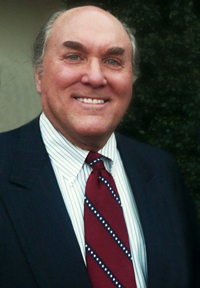
A prominent advocate of liberal education, Carmack has also pioneered the use of modern technology in the study of the Great Books, moderating the first live-audio, online Socratic discussion groups in 2000 and leading many similar online groups since. He is the recipient of the 2009 International Etienne Society’s Pope John Paul the Great Thomist Humanist Award for his work, and he recently spoke to CWR about the Angelicum Academy and his most recent educational endeavors.
CWR: What is the Angelicum Academy and why was it founded?
Patrick Carmack: I met with Dr. Mortimer Adler, the former editor of Encyclopaedia Britannica and of the Great Books of the Western World and author of 50 books on philosophy, in 1999 in Wye, Maryland and again in 2000 in San Mateo, California. Dr. Adler had long decried the waste of time in the American compulsory education system and its collapse into relativism and other philosophical problems.
My interest in meeting Dr. Adler was in seeking his advice on what a complete homeschool curriculum should look like. Over time, as homeschooling grew and mainstreamed—especially after the Columbine high school massacre in 1999, which moved hundreds of thousands of families into homeschooling—more and more homeschooling parents were looking for rigorous academic curricula.
Dr. Adler headed the Great Books movement for 80 years, from 1920 at Columbia to 2000. He saw that return to the classics as a critical part of the answer to progressive education and relativism. Beside the reading of the great classics, he believed the discussion of them in a Socratic, or conversational, manner was essential to gaining a solid understanding of their contents as well as to developing the ability think critically and speak effectively along with the other participants in the conversation. He called the study of the Great Books the “backbone of a liberal education” (“liberal” here meaning a “generalist” education as opposed to a narrow vocational or professional training).
Dr. Alder believed the American educational system was four years too long and resulted in an unnecessarily protracted adolescence. It is interesting to note that famed Catholic philosopher Jacques Maritain shared Dr. Adler’s views regarding the value of the Great Books and on shortening the time spent on just learning the liberal arts. Once the learning arts are mastered they should be used on something—that “something” is first the Great Books, specialization and vocationalism coming later.
The Chicken Inquisition
Jay Richards and James Robison, co-authors of Indivisible: Restoring Faith, Family and Freedom Before It's Too Late, analyze the Chick-fil-A controversy on the WSJ site:
The campaign against Chick-fil-A may be a more ominous attack on religious freedom than the Affordable Care Act's mandates. ObamaCare would force millions of Americans to fund actions they find morally reprehensible but leaves them free to denounce it. The chicken inquisition, by contrast, directly targets religious speech itself. ...
Mr. Cathy and many other Americans see marriage as a sacred institution. As a result, the campaign against Mr. Cathy is not just an attack on speech but on religious speech.
Irresponsible parties have referred to Chick-fil-A's "discrimination" and "anti-gay policies." There are no such policies.  Gay customers and employees are not tossed out of Chick-fil-A restaurants. Mr. Cathy has expressed no animosity toward gays. He has not even referred to same-sex marriage.
Gay customers and employees are not tossed out of Chick-fil-A restaurants. Mr. Cathy has expressed no animosity toward gays. He has not even referred to same-sex marriage.
He has simply articulated the historical Christian view of marriage, the same one President Obama endorsed until just a couple of months ago. For that thought crime, Mr. Cathy is now the target of a conspiracy of intimidation.
Read the entire piece. For more about Indivisible, visit the book's website. Also see my June 12, 2012, CWR interview with Jay Richards; here is part of that interview:
Catholic World Report: One often hears and reads the lament that our country is “too polarized and divided” and needs to “get past partisan differences”? Is that legitimate complaint? Or do the divides indicate real and substantially different perspectives that cannot be reconciled?
Richards: We should do our best to avoid vitriol and stick to rational arguments. But partisanship is hardly unique to our day. If you doubt that, read up on the election of 1800 between John Adams and Thomas Jefferson!
Too often, when people decry partisanship, they are either not thinking very carefully or really mean that we should quit arguing and do what they say.
The truth is, many of today’s political differences reflect real, underlying disagreements – not only about policies, but about fundamental principles. We debate subjects such as the definition of marriage, which would never have occurred to previous generations. The worst way to deal with those differences is to pretend they don’t exist. I’m old-fashioned enough to believe in reason and evidence, and I think the best way to resolve our differences politically is to have a fair and honest debate in full public view.
Catholic World Report: What can ordinary citizens do to both preserve authentic freedom and restore basic values and virtues?
Richards: Before anything, we should pray and pursue holiness. Our culture is far more than our politics. If individuals and communities are transformed by the Holy Spirit, that will have political effects.
At the same time, the current assault on religious freedom should compel us to political action. So we should:
Get informed. Learn the fundamental principles on which good policies are based. (See here for more details.) Spend time thinking about how to translate these principles into policy.
Stand together with fellow believers and lovers of liberty, and stand firm. If millions of us stand together in unity and refuse to comply with the mandate, it will fail. But let’s remember the key strategy of the opposition: To divide us and get us arguing amongst ourselves. We must not fall for this.
German theologian Dietrich Bonhoeffer said, “Not to stand is to stand. Not to speak is to speak.” If we stand here and now, we can still turn the tide.
August 1, 2012
The End of the Age of Distraction
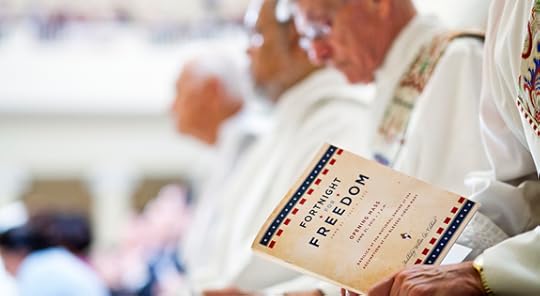
The End of the Age of Distraction | R. Michael Dunnigan | Catholic World Report
After decades of questionable pastoral statements, the US Catholic bishops’ statement on religious liberty is a triumph.
During the last third of the previous century, serious Catholics in America increasingly came to wince at the news that the body of their bishops had issued a new document. The reason was that the bishops’ most notable pronouncements in that period often were ill-conceived and verbose statements that could seem more partisan than pastoral. Worse yet, documents issued by certain committees of US bishops contained disturbing moral guidance that, far from transmitting the faith, actually posed dangers to it. If lay Catholics who endured this period of confusion and irresponsibility came to hope never again to see another document from the US bishops, they perhaps can be forgiven.
Nonetheless, even the most exhausted and exasperated Catholic would do well to attend carefully to the recent statement issued by the US bishops’ ad hoc Committee for Religious Liberty. That document, Our First, Most Cherished Liberty (April 2012), is a welcome break from the pattern that the bishops set in the late 1960s and followed for three decades. This powerful and lucid statement on religious liberty seems to have closed out the long period of questionable and verbose pronouncements from the American bishops, and it holds out the promise of a new era of gravity, clarity, and courage.
I.
One cannot fully appreciate this new statement without first recalling the tumultuous history of the documents that the Catholic bishops in America issued between 1968 and 1998.
20% off in honor of Saint John Vianney

20% off in honor of Saint John Vianney
Jean-Marie Vianney, or as he is more commonly known as The Cure d'Ars, is the patron saint of priests. His dedication to his vocation is an inspiration to all. In honor of this beloved saint, whose Feast day is August 4th, Ignatius Press is offering 20% off select books and DVDs. Learn more about the life and spirituality of St. John Vianney from any of the items listed below!
Books
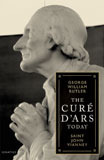 Cure D'Ars Today
Cure D'Ars Today
St. John Vianney
Fr. George Rutler
"An important, fascinating work by an important, fascinating author."
— John Cardinal O'Connor
Regular price: $14.95, sale price: $11.96
 The Grace of Ars
The Grace of Ars
Fr. Frederick L. Miller
The distilled wisdom of St. John Vianney for his brother priests. We see what it means to be a priest during difficult times by reflecting on the life and struggles of Vianney. 8 pages of color illustrations.
Regular price: $15.95, sale price: $12.76
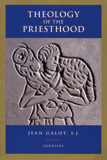 Theology of the Priesthood
Theology of the Priesthood
Jean Galot, S.J.
In this masterful work, theologian Jean Galot, S.J., clarifies the nature of the priesthood. He explains how the Jewish priesthood, the perfect priestly ministry of Jesus, and the role of the Twelve help us understand the ministerial priesthood.
Regular price: $17.95, sale price: $14.36
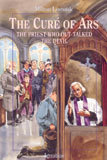 The Cure of Ars
The Cure of Ars
Milton Lomask
Lomask contributes his 2nd volume to the Vision Books series of saints for youth 9 - 15 years old in this story of the greatly beloved Curé of Ars.
Regular price: $24.95, sale price: $19.96
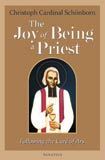 The Joy Of Being A Priest
The Joy Of Being A Priest
Christoph Cardinal Schoenborn
In these talks, the cardinal summarizes the vocation, challenge, and joy of the priesthood, drawing on the life of the Curé of Ars and many other saints.
Regular price: $12.95, sale price: $12.59
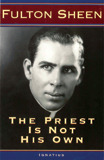 The Priest is Not His Own
The Priest is Not His Own
Fulton J. Sheen
Sheen presents a deeply spiritual look at the meaning of the priesthood and the priest as an "alter Christus". Sheen delves deeply into what he considers the main character of the priesthood, that of being, like Christ, a "holy victim".
Regular price: $16.95, sale price: $13.56
Christ the Ideal of the Priest
Fr. Columba Marmion
The great spiritual writer, Fr. Columba Marmion, wrote this classic work on the priesthood to show the holiness that priests are called to, and how that holiness can only be attained through close union with, and imitation of, Jesus Christ.
Regular price: $18.95, sale price: $15.16
Priesthood and the Diaconate
Gerhard Muller
Muller offers an irrefutable case for the Church's teaching and practice since the time of the Apostles of conferring the sacrament of Holy Orders on baptized males only.
Regular price: $19.95, sale price: $3.16
Magnificat: Year for Priests Companion
The Magnificat Year for Priests Companion is a one-of-a-kind spiritual guide designed to accompany you through this special Year with prayers, devotions, meditations, and essays celebrating the priesthood. Also included are 11 pages of sacred art masterpieces, a special Novena in honor of the Priesthood and more.
Regular price: $3.95, sale price: $3.16
John Mary Vianney
Sophie de Mullenheim
In this tenderly and colorfully illustrated story, children will learn how John Vianney heard his calling to the priesthood when as a young boy during the French Revolution he attended underground Masses with his devout family.
Regular price: $14.99, sale price: $11.99
Meeting Jesus and Following Him
Francis Cardinal Arinze
These inspiring spiritual exercises on the meaning of the priestly life are from a retreat given to Pope Benedict and the papal household.
Regular price: $12.95, sale price: $10.36
To Save a Thousand Souls
Rev. Brett Brannen
To Save a Thousand Souls: A Guide for Discerning a Vocation to Diocesan Priesthood is the definitive guide for men considering the priesthood. Using powerful and entertaining stories, the book explains in down-to-earth language how to carefully discover God's call.
Regular price: $20.00, sale price: $16.00
Films
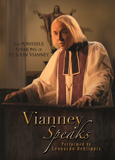 Vianney Speaks
Vianney Speaks
Travel through time to the 19th century church of Ars, France, in this dramatic presentation of Vianney Speaks, performed by Leonardo Defilippis. There you will witness firsthand the inspiring sermons and intimate prayers of Saint John Vianney, that vividly illustrate the human frailty, humility and fervor of the patron saint of parish priests.
Regular price: $19.95, sale price: $15.96
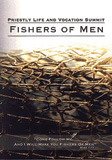 Fishers of Men
Fishers of Men
This is the powerful film so many are talking about. In 18 minutes Fishers of Men does what hours of apologetic talks on the priesthood and Catholicism struggle to do. This film has even convinced non-Catholics of the importance of the priesthood, and helped many to understand for the first time what the Catholic priesthood is all about.
Regular price: $19.95, sale price: $15.96
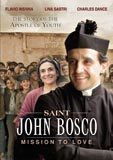 St. John Bosco
St. John Bosco
Beautifully filmed in Italy, this epic movie dramatizes the many challenges that Don Bosco had to overcome from his childhood through founding his religious order, the Salesians, for helping educate boys.
Regular price: $24.95, sale price: $19.96
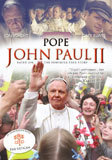 Pope John Paul II
Pope John Paul II
This epic film follows Karol Wojtyla's journey from his youth in Poland through his late days on the Chair of St. Peter. It explores his life behind the scenes: how he touched millions of people and changed the face of the Church and the world; how he defended the dignity of mankind.
Regular price: $19.95, sale price: $15.96
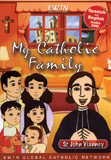 St. John Vianney
St. John Vianney
In this wonderful new animated series, Thomas and his wife Helen help their children Alex and Sarah come to a greater understanding of the importance of virtue by teaching them about the lives of the Saints. In this episode, the life of St. John Vianney and his love of the Eucharist are explored.
Regular price: $14.95, sale price: $11.96
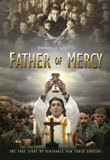 Father of Mercy
Father of Mercy
A powerful epic film on the life of Fr. Carlo Gnocchi, an Italian priest who labored heroically to minister to the wounded and dying soldiers during World War II, and to victims of the war on the home front.
Regular price: $24.95, sale price: $19.
For Additional Sale Items Click HERE!
Items are not sold on approval.
Periodically we make available -- only to you, our valued repeat customers -- special offers which are not available to the general public. We offer these discounted prices as our gift to those who help us by using Ignatius.com. Please do not ask for retroactive price consideration. We cannot accommodate those requests. Many thanks.
40% off Lynn Klika's Pick of the Week

40% off Lynn Klika's Pick of the Week*
7 Secrets of the Eucharist is not just a favorite of mine, but of many, many people. It gives a simple yet profound explanation of Jesus, coming to us in His Real Presence of the Holy Eucharist and how we can 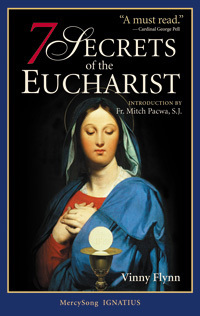 more fully receive Him. Although it is thought provoking, it is easy and enjoyable to read.
more fully receive Him. Although it is thought provoking, it is easy and enjoyable to read.
God greatly desires to pour out His grace and presence upon us. But we’re sometimes not in a position or attitude to receive all God has for us. Why do we come to God's table with an indifferent attitude, as though the God of the universe is not there in the flesh? This book helps teach us how to open our hands, hearts, and minds to God's love, and receive more.
7 Secrets helps readers to once again be amazed by the mystery of the Eucharist. While no one can fully understand the Eucharist, Flynn uses Scripture, the Catechism of the Catholic Church, Church documents, and the Diary of St. Faustina to help explain it as clearly as possible. St. Faustina, known for her role in spreading devotion to Divine Mercy, was also deeply dedicated to the Eucharist and refers to it often in her writings.
Flynn is clear that there are more than seven secrets of the Eucharist and that these aren't really secrets. He writes, "I call them secrets because, for some reason, they don't seem to have been passed on to the average lay person in a way that would enable us to really understand them and incorporate them into our daily lives." The first 3 secrets are 1) The Eucharist is Alive, 2) Christ is not alone, and 3) There is only one Mass.
I don’t want to give away all the treasures! For the rest of the secrets, read the book. This is truly a book you will read again! 7 Secrets is also available as an audio book.
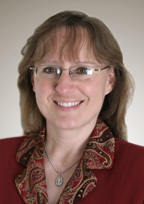 Carolyn "Lynn" Klika is the founder and president of Catholic Word Publisher Group, established in 1998. Carolyn started Catholic Word with a dream, love for the Faith and a desire to serve the Church. She has kept the same mission of bringing people closer to Christ one soul at a time, and today the Catholic Word team has built a partnership with over 25 publishers and is still growing.
Carolyn "Lynn" Klika is the founder and president of Catholic Word Publisher Group, established in 1998. Carolyn started Catholic Word with a dream, love for the Faith and a desire to serve the Church. She has kept the same mission of bringing people closer to Christ one soul at a time, and today the Catholic Word team has built a partnership with over 25 publishers and is still growing.
For the last 10 years, her sales team has handled the Ignatius Press Bookstore Sales Dept, working with bookstores, catalog companies and distributors.
After working in sales, sales training and management for Fortune 500 companies and founding and running a Catholic bookstore, she served in marketing, editorial, and other publishing capacities and is a contributor to Amazing Grace for Mothers. She has been featured on Catholic television and radio and served as a speaker and retailer consultant for the Catholic Marketing Network. Her passions include all things Catholic, Rome, horses and racquetball, along with her husband, Scott, and their five children.
*Employee Pick of the Week program features savings of 40% off a book, movie, or compact disc personally chosen and recommended by an Ignatius Press employee. Each week, an Ignatius Press employee will select a favorite book, movie, or other Ignatius Press product and write a few sentences about why he/she thinks customers will enjoy the particular selection. A short bio of the selecting employee will also be included, giving customers a chance to learn a bit more about the people who are Ignatius Press.
Offer ends Tuesday August 7th, 2012 at 12:00 midnight EST.
These prices are available online only through Ignatius.com
July 31, 2012
DNC platform will openly support marriage as being between...
... two adults, regardless of sex. File under, "If you're surprised, we'll assume you've been living on Mars for a while":
Democrats are set to include a pro-gay marriage plank in their convention platform for the first time in history, party sources confirm to POLITICO. The language was approved unanimously by a 15-member platform draft committee, and now heads for approval by the full platform committee in August.
The party’s Platform Drafting Committee agreed, unanimously, to approve the language at a meeting this weekend in Minneapolis.
A source in the meeting said the decision was “not controversial.”
The language will not become official until the party’s full Platform Committee meets Aug. 10 in Detroit.
The effort to include gay marriage in the platform gained increased momentum after President Barack Obama announced in May that his views on the issue had changed to support legalization.
“I don’t think that we had any issues that were controversial,” one member of the committee said Monday. “I think we were pretty much in sync and in agreement with where we ended up.”
Read the entire piece on the Politico site. While we're on the topic of assaults on marriage, family, and commonsense, here is an excerpt from Matthew Franck's review of the book, Debating Same-Sex Marriage, co-authored by John Corvino and Maggie Gallagher:
July 30, 2012
Four essays about St. Ignatius of Loyola...
Carl E. Olson's Blog
- Carl E. Olson's profile
- 20 followers









